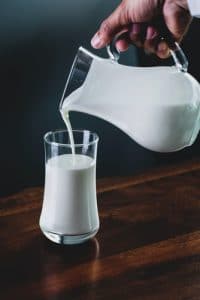The Most Common ENT Issues and How We Help Solve Them
People of all ages are susceptible to ear, nose, and throat (ENT) disorders, which significantly interfere with day-to-day functions. We treat a variety of...
Posted on January 15, 2021
ENTDo you avoid giving your child milk when they have a respiratory infection or if they have asthma? If so, you’re not alone. There’s an old wives’ tale that drinking milk triggers excessive mucus production and is dangerous for children with breathing problems; however, a body of research shows this is untrue and that milk consumption does not impact mucus production.

The idea that milk can cause congestion likely stems from the 12th century when Jewish philosopher Moses Maimonides wrote that milk causes a “stuffing in the head.” This idea has lingered for centuries and was even published in the 2011 edition of Dr. Spock’s Baby and Childcare.
According to Dr. Ian Balfour-Lynn, a respiratory specialist from the Royal Brompton Hospital in London, one survey of American parents found that 59% believed drinking milk increases mucus production, 20% weren’t sure and 22% asserted it does not.
The answer is simple: “Milk does not cause lots of extra mucus to be produced when someone has a cold or any chest disease, including asthma,” said Balfour-Lynn. “Milk is an important source of calcium, vitamins and calories in the young. It should not be avoided.”
A 2012 study by the BC Children’s Hospital confirms this, reporting that “studies have not been able to provide a definitive link” between milk and increased mucus production, and that “milk should not be eliminated or restricted.”
In other words, next time you’re at the Headhouse Farmers Market, be sure to support your local dairy farm while you’re there.
If you’re skeptical of the experts, it may be because of your own personal experience with drinking milk. It’s true that many people describe a mucusy feeling in the mouth and throat after drinking milk, so if it’s not actually increased mucus production, what is it?
Milk is basically fat dissolved in water, and the sensation of a coating in the mouth is just the result of oral enzymes interacting with the milk.
“The mucins in the mouth appear to cause emulsions to form aggregates, which means the volume increases and it gets stickier,” Balfour-Lynn explained. “It is likely what some people feel in their throats, which they mistakenly believe is extra mucus.”
For more information about incorporating milk into your child’s diet or if you have concerns about your child’s respiratory condition, call the experts at Pinnacle ENT Associates today.
People of all ages are susceptible to ear, nose, and throat (ENT) disorders, which significantly interfere with day-to-day functions. We treat a variety of...
Voice disorders can affect anyone and are classified as such when you have a problem with pitch, tone or other qualities of your voice....
Sleep is essential to your health and well-being, yet many people struggle to get their full eight hours. One often overlooked obstacle to a...
Breathing disorders in children can be concerning for parents and caregivers. Understanding common pediatric breathing disorders and their treatments can help in managing these...